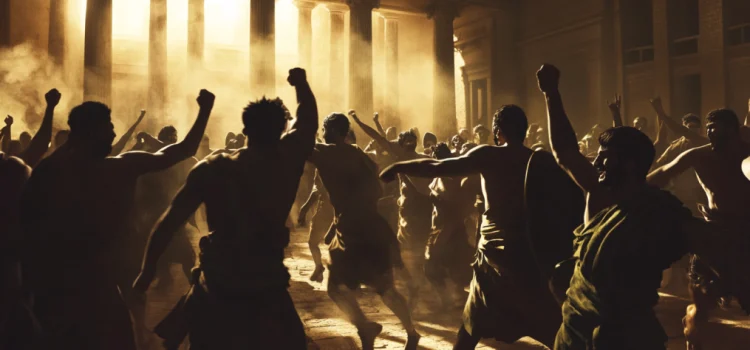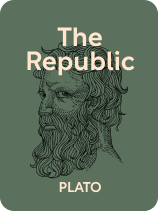

This article is an excerpt from the Shortform book guide to "The Republic" by Plato. Shortform has the world's best summaries and analyses of books you should be reading.
Like this article? Sign up for a free trial here.
Is tyranny simply a form of governance, or is it a product of a certain psychology? How does Plato’s view of tyranny relate to modern political systems?
According to Plato, tyranny results when democracy deteriorates. In The Republic, he describes tyrannies and the psychological profile of a tyrant, providing insights into power dynamics and human behavior that remain relevant today.
Continue reading to understand Plato’s thoughts on tyranny and how it happens.
Plato on Tyranny
According to Plato, tyranny is governance by mob rule, violence, and oppression. In such a system, society is run by a single charismatic leader—a tyrant—who appeals to the people but only cares about himself. He makes his argument through the character of Socrates in The Republic.
A democracy becomes a tyranny through conflict between the rich and poor. In a democracy, the rich and poor have equal rights and freedoms but unequal wealth. Therefore, a charismatic leader can mobilize the poor by promising to persecute their enemies and redistribute wealth. Using the legal system and mob violence, this leader eliminates their political opponents and secures their power. They can then use wealth seized from the rich to hire a private army and oppress the masses for their personal benefit.
(Shortform note: Plato wrote The Republic not long after the end of a tyrannical regime in Athens. After Athens lost the Peloponnesian War to Sparta, the Spartans disbanded Athenian democracy and installed the Thirty Tyrants. The Thirty ruled with violence and fear, killing a large portion of the Athenian population and seizing their belongings. Plato grew up during the rule of the Thirty, which strongly influenced him—hence his dedication to educating the future leaders of Athens in philosophy to prevent something similar from happening again.)
The Tyrannical Man
According to Socrates, the tyrannical man is ruled by his violent, animalistic desires. His father—a democrat—teaches him that indulging in pleasure is OK if he practices moderation. On the other hand, his society teaches him to indulge extravagantly as much as he likes. And since his father refuses to judge people for indulging in pleasures, he doesn’t stop the tyrannical man from giving himself over to his desires. The tyrannical man spends his time having wild orgies, getting drunk, and eating to excess. When he runs out of money to feed his habits, he lies and cheats to get more. If that fails, he robs and kills people.
(Shortform note: Scholars suggest that Thrasymachus represents the tyrannical man, as he argues early on that might makes right and the strong should take whatever they desire. After his initial argument, though, one of the only times Thrasymachus speaks is to cast a vote along with the others on the group’s next topic of discussion. This behavior suggests that Socrates has elevated Thrasymachus to a democratic man.)

———End of Preview———
Like what you just read? Read the rest of the world's best book summary and analysis of Plato's "The Republic" at Shortform.
Here's what you'll find in our full The Republic summary:
- Plato’s concept of justice
- Why living a moral life is good for its own sake
- How later philosophers interpreted and responded to the ideas in The Republic






